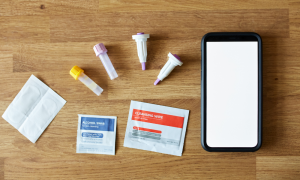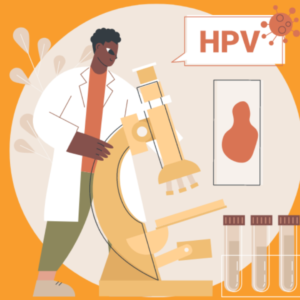
Testing for STIs at home? Yes, it’s possible—and popular
Testing for STIs at home? It’s possible, and an increasingly popular option. Read on to better understand how home testing works and what free at-home tests are available in your area.
NGU:
Fast Facts
NGU can be passed on through both sexual and non-sexual contact.
Sexual
Most germs that cause NGU can be passed during sex (vaginal, anal or oral) that involves direct mucous membrane contact with an infected person. These germs can be passed even if the penis or tongue does not go all the way into the vagina, mouth or rectum, and even if body fluids aren’t exchanged.
Nonsexual
Perinatal
During birth, infants maybe exposed to the germs causing NGU in passage through the birth canal. This may cause the baby to have infections in the:
For people with a penis (urethral infection)
For people with a vagina (vaginal/urethral infection)
The germs that cause NGU in men might cause other infections in people with vaginas. These might include vaginitis or mucopurulent cervicitis (MPC). The infection may also be asymptomatic (have no symptoms). Symptoms of NGU can include:
Anal or Oral Infections
Anal infection may result in rectal itching, discharge, or pain on defecation. Oral infection may occur. Most (90%) are asymptomatic, but some people might have a sore throat.
An NGU diagnosis is made when a man has urethritis (inflammation of the urethra), but gonorrhea is ruled out because he has a negative gonorrhea culture and/or gram stain. Other tests include chlamydia culture or urinalysis (sometimes, but rarely).
In women, it may be diagnosed by chlamydia culture. A gonorrhea culture may be done to rule out gonorrhea.
NGU is treated with antibiotics. Some treatments are not appropriate for someone who is pregnant, so someone who is pregnant, or thinks they might be, should inform their health care provider.
Some general treatment guidelines:
Left untreated, the germs that cause NGU—especially chlamydia—can lead to complications:
People with a penis
People with a uterus
Infections caused by anal sex might lead to severe proctitis (inflamed rectum).
If you have been told that you have NGU, talk to your partner(s), and let them know so they can be tested and treated. The most common cause of NGU is chlamydia, and it is easy to pass from an infected partner to one who is not infected.
All sex partners of someone diagnosed with NGU should be treated because:

Testing for STIs at home? It’s possible, and an increasingly popular option. Read on to better understand how home testing works and what free at-home tests are available in your area.

Are penises getting longer? New research suggests the average penis length has increased over the last few decades. Does it matter?

HPV (a.k.a. human papillomavirus) is the name of a group of viruses that infect the skin. In women, HPV can lead to cervical cancer (and other types of cancer as well), but what about in men? Think you know about HPV and men? Take the

HPV (a.k.a. human papilloma virus) is an equal opportunity virus, infecting both men and women. Men can get infected with HPV, and most do—it’s so common that nearly all sexually active people will have HPV at some point in
their lives.

Erectile dysfunction (ED) is a subject that is not often talked about—it can be awkward and embarrassing for both and men and women to discuss, even with a health care provider. But talking about it, and learning about it, can help men and their partners

Strong and Silent Types It happens more than you probably think: an estimated 1 in 6 males has experienced sexual abuse, either in childhood or adulthood. A lack of resources and awareness, coupled with rigid social views on masculinity, are just some of the obstacles
ASHA believes that all people have the right to the information and services that will help them to have optimum sexual health. We envision a time when stigma is no longer associated with sexual health and our nation is united in its belief that sexuality is a normal, healthy, and positive aspect of human life.
ABOUT
GET INVOLVED
ASHA WEBSITES
GET HELP
© 2026 American Sexual Health Association
We need to know if we can keep you company during this visit. We are useful for making this site work.
We use cookies to enhance your browsing experience. You can choose which cookies you want to accept.
Necessary cookies help make a website usable by enabling basic functions like page navigation and access to secure areas. The website cannot function properly without these cookies.
| Cookie | Provider | Purpose | Expiry |
|---|---|---|---|
digiconsent | This website | Stores your cookie consent preferences. | 1 year |
wordpress_logged_in_* | WordPress | Identifies logged-in users and their authentication details. | 14 days / Session |
wordpress_sec_* | WordPress | Stores authentication details for secure areas. | 14 days / Session |
wp-settings-* | WordPress | Stores user interface customization preferences. | 1 year |
wp-settings-time-* | WordPress | Stores the time when wp-settings cookie was set. | 1 year |
Analytics cookies help us understand how visitors interact with our website by collecting and reporting information anonymously. This helps us improve our website.
| Cookie | Provider | Purpose | Expiry |
|---|---|---|---|
_ga | Registers a unique ID to generate statistical data on website usage. | 2 years | |
_ga_* | Used by Google Analytics to store and count pageviews. | 2 years |
Marketing cookies are used to track visitors across websites. The intention is to display ads that are relevant and engaging for the individual user.
Functional cookies enable the website to provide enhanced functionality and personalization. They may be set by us or by third party providers.